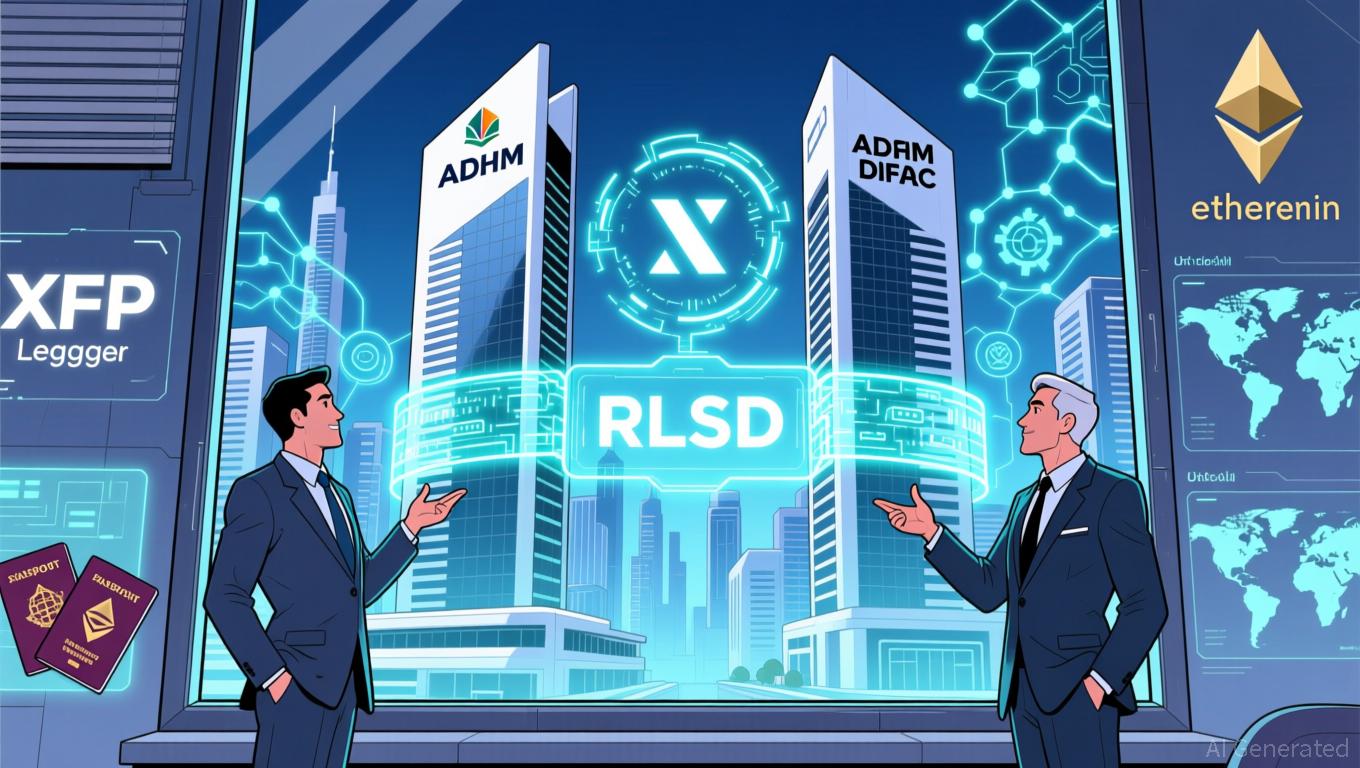Australia's approach to cryptocurrency regulation promotes innovation and protects investors
- Australia introduces 2025 Digital Assets Framework Bill to regulate crypto exchanges and custody platforms under AFSL licensing and ASIC oversight. - The law creates two platform categories (transactional and custody) with exemptions for small operators and strict compliance penalties to prevent fraud. - Projected $24B annual economic gains aim to balance innovation with investor protection, aligning with global crypto regulatory trends like the U.S. GENIUS Act. - Industry welcomes safeguards but seeks s
Australia Unveils Comprehensive Crypto Regulation Framework
Australia is taking significant steps to bring cryptocurrency exchanges and digital asset custody services under its financial licensing system. This initiative is designed to enhance investor security, stimulate economic growth, and keep pace with international regulatory standards. The Corporations Amendment (Digital Assets Framework) Bill 2025, presented by Treasurer Jim Chalmers and Financial Services Minister Daniel Mulino, marks the nation’s first all-encompassing set of rules for digital asset platforms and tokenized custody providers. The bill successfully passed its initial reading in Parliament on November 20, 2025.
Under the proposed legislation, all operators must secure an Australian Financial Services Licence (AFSL) and are subject to oversight by the Australian Securities and Investments Commission (ASIC).
Key Features of the Bill
- Platform Categories: The framework distinguishes between digital asset platforms, which handle activities like crypto trading and staking, and tokenized custody platforms, which issue tokens backed by real-world assets such as real estate or commodities.
- Strict Compliance: Operators are required to meet rigorous standards for transparency, efficiency, and asset security, following ASIC’s guidelines for custody and settlement.
- Exemptions for Small Operators: Platforms managing less than $5,000 per customer or with annual volumes under $10 million are not required to obtain full licensing, a measure intended to support innovation while maintaining essential protections.
- Enforcement and Penalties: Failure to comply can result in substantial fines, aiming to prevent mismanagement and fraudulent activities.
Government and Industry Perspectives
Officials highlighted that the new framework addresses major regulatory gaps in the crypto sector. The government estimates that integrating digital assets more seamlessly into the economy could boost annual productivity by as much as $24 billion. James Volpe, founder of Melbourne-based Web3 education company uCubed, praised the approach for allowing early-stage projects to experiment without immediate licensing requirements, striking a balance between encouraging innovation and protecting consumers.
These reforms also bring Australia in line with global efforts to clarify digital asset regulations, echoing initiatives like the U.S. GENIUS Act and updated SEC policies.
Recent Regulatory Developments
The bill follows ASIC’s October 2025 revision of Information Sheet 225, which clarified that many tokens and stablecoins are considered financial products under current laws. This update further strengthens regulatory expectations for custody, fund management, and yield-generating crypto products. Australia’s proactive stance aims to harness the economic benefits of blockchain technology while reducing risks linked to unregulated crypto activities.
Industry Response and Future Outlook
While the new framework has been broadly welcomed by industry participants, some have advocated for more straightforward rules and clearer definitions. The government emphasized the vital role of blockchain in driving economic progress, stating that these reforms will enhance protections for Australians who use private digital asset platforms. As the bill moves through Parliament, its adoption is expected to influence how other countries approach the integration of cryptocurrencies with traditional financial systems.
Disclaimer: The content of this article solely reflects the author's opinion and does not represent the platform in any capacity. This article is not intended to serve as a reference for making investment decisions.
You may also like
XRP News Today: With Tether and USDC under examination, RLUSD from the UAE stands out as a regulatory-compliant stablecoin option.
- Ripple's RLUSD stablecoin received ADGM approval as a regulated fiat-referenced token in Abu Dhabi, enabling institutional use in payments and treasury management. - Pegged 1:1 to the USD with NYDFS oversight, RLUSD ($1.2B market cap) offers compliance-driven alternatives to USDT/USDC amid global regulatory scrutiny. - UAE's ADGM-DIFC regulatory framework positions the region as a crypto innovation hub, with Ripple expanding partnerships through Zand Bank and Mamo fintech . - The approval aligns with UAE

ZK Atlas Enhancement: Driving Institutional Embrace Amid the Blockchain Scalability Competition
- ZKsync's Atlas Upgrade solves throughput bottlenecks with Airbender RISC-V zkVM, enabling 15,000+ TPS at $0.0001 per transaction. - Modular ZKsync OS reduces gas fees by 70% since 2023, enabling real-time financial applications while maintaining regulatory compliance. - Deutsche Bank and UBS test ZKsync for asset tokenization, highlighting its institutional appeal through privacy-preserving ZK features and sub-second finality. - Upcoming Fusaka upgrade aims to push TPS to 30,000 by December 2025, but reg

Bitcoin Updates: Bitcoin Receives Major-Cap Status as Nasdaq Increases Options Limits Fourfold
- Nasdaq seeks SEC approval to quadruple IBIT options limits from 250,000 to 1 million contracts, aligning Bitcoin ETF with high-liquidity assets like EEM and GLD . - The proposal cites IBIT's $86.2B market cap, 44.6M daily shares traded, and industry support for addressing institutional demand amid Bitcoin's rapid financial instrument maturation. - Experts argue higher limits will reduce spreads, enable sophisticated hedging, and treat Bitcoin as a "mega-cap asset," while Nasdaq also seeks unlimited FLEX

XRP Update: ADGM's Green Light for RLUSD Strengthens UAE's Pursuit of Digital Financial Growth
- Ripple's RLUSD stablecoin secured ADGM approval as an institutional fiat-backed token in November 2025, following DIFC's June 2025 greenlight. - The UAE's dual regulatory endorsements position RLUSD for cross-border settlements, with $1.2B market cap driven by institutional demand for collateral and treasury tools. - ADGM's stringent oversight framework requires full reserve backing and AML compliance, aligning RLUSD with global standards under NYDFS charter . - XRP prices surged 24% in late 2025 amid $1
